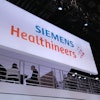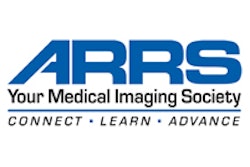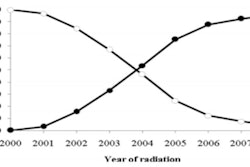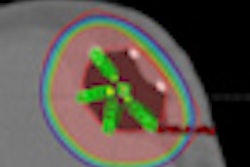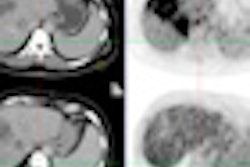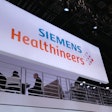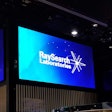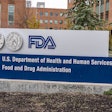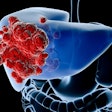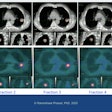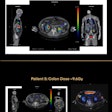Dear AuntMinnie Member,
The debate over breast brachytherapy's effectiveness got hot again today with the publication of a controversial study in the Journal of the American Medical Association. The research cast doubt on the technology's effectiveness when it was first presented at a scientific conference last year.
The study compared women who received whole-breast radiation to those who received accelerated partial-breast irradiation (APBI) over five years. The APBI group had a higher risk of mastectomy, as well as higher complication rates.
But APBI backers believe the study is full of holes. Read their arguments by clicking here, or visit our Radiation Oncology Digital Community at radiation.auntminnie.com.
Risk of CT radiation
Meanwhile, a new study being presented at this week's American Roentgen Ray Society (ARRS) meeting in Vancouver is trying to put some perspective on the discussion over the risk to pediatric patients from medical radiation.
It's widely known that children are the most at risk of developing cancer following exposure to radiation. However, this risk should be considered against the risk from the underlying diseases for which children are scanned, according to a group from Boston.
The researchers calculated long-term CT-induced cancer incidence and compared it to mortality rates over the first five years after the patients were scanned. They found that the patients who were scanned most frequently -- and who would have the highest long-term cancer incidence -- also had short-term death rates approaching 50% for some types of CT scans. Read more by clicking here.
Also from the ARRS meeting is a report on how to best manage CT radiation dose, based on a talk by Dr. Marilyn Siegel of the Mallinckrodt Institute of Radiology. While new dose-reduction technologies are great, Dr. Siegel believes the best course of action is to make sure that CT is the best tool to use in the first place. Get more information by clicking here, or visit our CT Digital Community at ct.auntminnie.com.
Breast screening redux
Finally, if you're not yet tired of the debate over screening mammography, you'll want to read an article this week in our Women's Imaging Digital Community that starts to home in on exactly which women in their 40s should get breast screening.
This age group was the subject of the U.S. Preventive Services Task Force's (USPSTF) controversial 2009 decision to withdraw its automatic recommendation in favor of screening. Instead, the USPSTF advised that women in their 40s consult with their physicians.
This week's study, from the Annals of Internal Medicine, offers some guidance on how to interpret that rather fuzzy advice. The research found that the benefits of breast screening every two years for high-risk women in their 40s actually outweigh the harms. But low-risk women should wait until they turn 50.
Read the article by clicking here. And if you've got an opinion on the study (and we know you do), let us know by visiting our Forums, where a debate is already raging over the advisability of breast density notification, which we mentioned in last week's newsletter.

